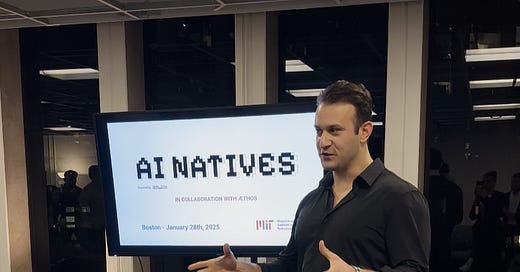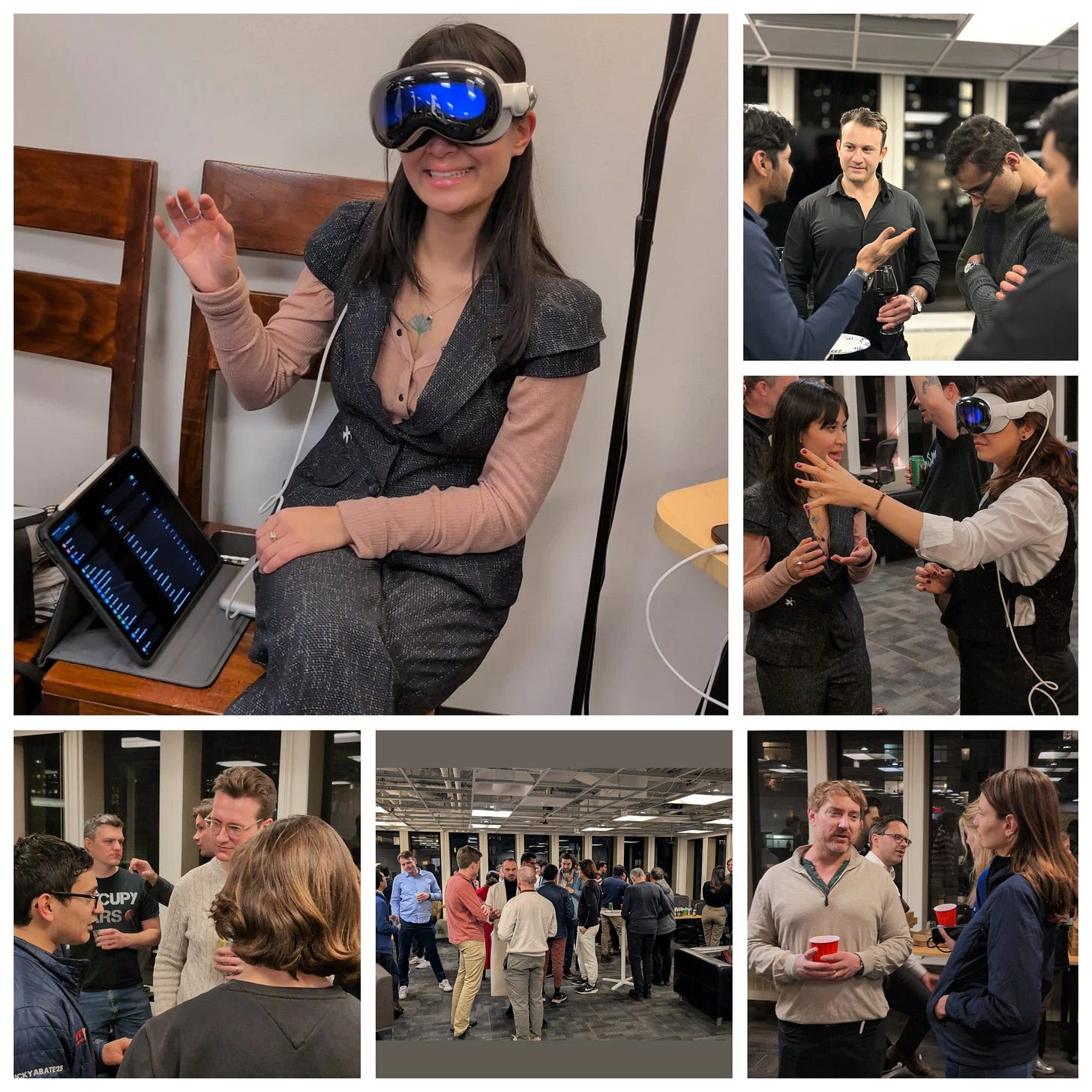AI Natives @ MIT
What makes the Boston AI Native ecosystem special & 3 founder personas that will kill it in the age of AI
Listen to a 9-minute pod on this article if you are on the go or just want a fun way to digest!
Boston is one of the best places in the world to build startups. Over the last six years, this Irish-American powerhouse has raked in a staggering $115 billion in venture funding across nearly 6,000 deals, producing more than 650 exits and creating $170 billion in value. Only SF, NYC, and LA rank higher as venture juggernauts. But let’s be real—this isn’t just luck. With MIT and Harvard leading the charge, Boston doesn’t just have the most universities per capita—it has the best.
That’s why last week, we gathered 50+ (stealth 👀) founders, hackers, researchers, and investors at MIT for our flagship event—AI Natives.
And wow, what a night.🔥
From biotech founders reimagining drug discovery with AI to teams building agentic workflows for automated social media ads, and from Apple Vision Pro-powered mixed reality applications to a startup quietly plotting to disrupt Eventbrite—Boston’s startup scene is bursting with diverse, high-caliber innovation. But there’s a distinct flavor here. Unlike Silicon Valley, where 95% of founders are software-first, Boston leans heavily into hardware and tough tech. And yet, what binds all these founders together is the AI Native mindset—the belief that this new paradigm of company-building will mint the next wave of trillion $ startups.
Key insights from the night:
1\ "One Ten Hundred" orgs are becoming real – A single AI-native team, building a 10-person company, scaling to $100M ARR. This is the future of venture—the age of the “Fortune 1 million”—which may eventually lead to the emergence of one-person unicorns.
2\ AI-native founders are rare (the top 2.5%). Let’s set the record straight—just because you use ChatGPT or Perplexity doesn’t make you AI-native, nor give you any competitive edge. Real AI-native founders don’t just use AI; they embody it, architecting their companies around automation and intelligent workflows. And here’s the kicker—when other founders see this way of building, it clicks instantly. They get it. And are super inspired to build in alignment with our One Ten Hundred vision.
3\ AI-native companies turn founders into orchestrators. The best AI-native startups are semi-autonomous organizations, where humans—in synergy with AI agents, open-source tools, and custom workflows—handle a myriad of functions from product to go-to-market. The secret weapon? A Chief AI Officer (or, if you’re strapped for cash, an AI intern;). Someone has to own this transformation and optimize it daily, looking over the shoulders of the startup leadership cross-function.
3 founder personas thriving in the age of ubiquitous AI
For months, we’ve been obsessing over one question:
If AI makes it possible to build an MVP in a weekend, where’s the moat?
Founders aren’t just competing with other startups anymore—they’re up against millions of indie hackers, solopreneurs, and AI-assisted builders worldwide. After 300+ interviews with founders, devs, and investors—including folks from MIT—we've pinpointed the three founder personas most likely to succeed in this new era where everything is upended:
👩🏼💻Super technical founders building a semi-autonomous organization run by an army of AI agents. This is the indie hacker that locks themselves up into their homes for a few weeks, building products at incredible speed, while deploying agents to cover gaps in their skills or resources. A great example here is the founder deploying 100 agents to do A/B testing on social media ads.
👨🏼💼Non-technical domain experts with solid distribution. Picture a VP of Sales in a mining or utilities company—someone who’s spent years in a tough-to-penetrate vertical, knows the problems inside out, and suddenly has the power to build software without a tech background. Their distribution advantage crushes even the best Silicon Valley engineers.
👁️Visionaries, systems-thinkers, and assemblers. Pre-GenAI, execution was King. In the age of ubiquitous AI, the vision becomes the Emperor. Those who ask the right questions—and assemble the right AI and human teams—will win. AI is the great equalizer; the biggest moats now lie in choosing the right problems, not just building exceptional solutions.
Of course, the magic happens when a founding team combines these personas—e.g. when a visionary has technical chops, or when a domain expert can assemble an AI-native team. That’s where the golden fleece is.
If you are building the next 10-person $100M ARR company, we want to talk to you.
Get in touch here: hello@blackbird.associates










